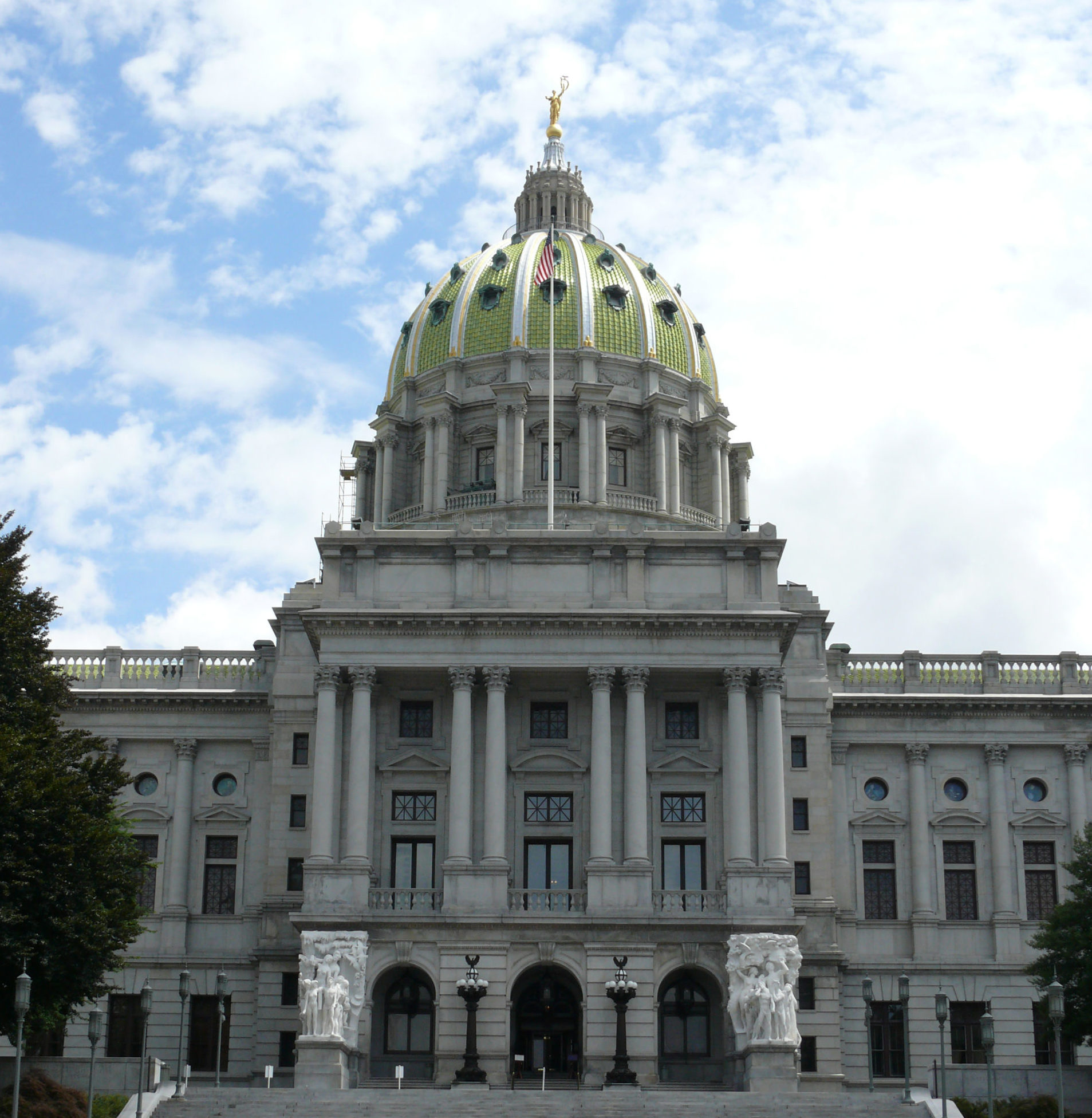Top Stories of 2021 Point to a Busy 2022

Pennsylvania politics was awash in drama in 2021, from constitutional amendments, elections, election reform, and more. Let’s take a look at five story lines from this year, three that happened, and two that didn’t.
What Happened:
The Constitution Shall Be Amended
Constitutional amendments aren’t new for Pennsylvania voters, but the impact of two questions before voters in the 2021 primary elections will be felt for years to come. Tired of vetoes from the Democrat governor and lost cases before the Democrat controlled Pennsylvania Supreme Court, Republicans in the legislature took the fight on COVID restrictions to the voters. Despite efforts by Gov. Wolf to slant the ballot questions, allowing the General Assembly to end an emergency declaration and limiting a unilateral Emergency Declaration to 21 days without the approval of the General Assembly, the measures both passed.
Pennsylvania became the first state in the nation to limit a governor’s emergency powers as a result of COVID restrictions, but it didn’t stop the governor. Wolf used his health secretary to mandate masks in schools, but the courts overruled this move, even his Democrat allies in the Pennsylvania Supreme Court didn’t come to his aide this time. After over a year of shutdowns and restrictions, the tide has turned on COVID restrictions, it started here on May 18, 2021.
Josh Clears the Field
Yes, the race for governor and U.S. Senate will be decided in 2022, but in today’s world of politics, the race starts well before the calendar flips. Both contests will be no doubt be vigorous and expensive. The primaries and general election are likely to break records in terms of money spent, save one contest, the Democrat primary for governor. Attorney General Josh Shapiro appears to have a cleared the field and will cruise to the nomination in May. Meanwhile Republicans have more than 12 candidates vying for the nomination. In the U.S. Senate, Democrats have at least five major candidates, Republicans, six.
How rare is Shapiro’s feat? The 2002, 2010, and 2014 Democrat primaries were all contested. Of course, there are still two months before petitions are circulated. It is not out of the realm of possibilities a candidate may declare, but with $10 million in Shapiro’s war chest, that candidate better have a big check book.
“A Good Day in Baseball”
If “two out of three ain’t bad,” than three out of four must be good too. That’s how Republicans faired in four 2021 statewide judicial elections. Securing victories on the Pennsylvania Supreme Court, with Judge Kevin Brobson, Pennsylvania Superior Court with Megan Sullivan Kampf, and Pennsylvania Commonwealth Court with Stacy Wallace, the Pennsylvania GOP heads into 2022 with confidence.
In addition to statewide wins, Bucks County Republicans swept all contests on the ballot, along with school board victories around the commonwealth.
What Didn’t Happen:
Election Issues Continue…
Regardless of one’s opinion on the 2020 election process, it was hardly without issues. Some of those issues spilled over in the 2021. After vetoing an election reform bill saying it would “undermine faith in government,” Wolf would later admit to violating election law for the 2021 General Election. Ironically, had Wolf signed the election bill he vetoed, his violation – asking his wife to drop off his ballot – would have been permitted.
Other issues were reported as well, such as Montgomery County counting undated ballots in the primary, a direct violation of a Pennsylvania Supreme Court ruling. Berks County sent out 17,000 mail-in voting instructions to Spanish speaking voters with the wrong return date deadline. The English instructions had the correct date. Indiana County made a similar mistake. Much like COVID-19 restrictions, if progress is not made in 2022 toward election reform, a constitutional amendment is not out of the question in 2023.
Redistricting Continues…
Citing issues with COVID-19, The U.S, Census Bureau announced the data needed to draw new district lines would be delayed. The data is necessary for the State House and Senate Redistricting Commission to draw new lines, as well as the legislature to vote on congressional districts. With time not on their side, the map makers went to work with the information they had, then they eventually included the finalized Census data.
One map appears to be set, the state Senate. The map passed the Legislative Redistricting Commission with a 5-0 vote on December 16. The new maps likely won’t flip the Senate to Democrat hands but will see the Republicans hold the chamber with a slimmer majority. The Pennsylvania House on the other hand is another story, leaving Republicans seeing red, but not on the maps. The map passed on partisan lines, 3-2. Under the Commission’s plan, 12 Republican incumbents will face off in primaries, compared to two Democrats. The maps aren’t set yet, a 30-day public comment period is now underway. Republicans in the House are sure to opine.
The Pennsylvania Congressional lines are drawn by a different process, the legislature votes on a map, and the governor either accepts or rejects it. Population loss requires Pennsylvania lose a seat, going from 18 to 17 members. A proposed map was voted from the House State Government Committee on December 15. The future of the map is on shaky ground. Wolf recently declared he would not take part in negotiations with the legislature. Perhaps setting up the state Supreme Court to draw their own map as they did in 2018. That map resulted in Democrats picking up five seats.
Follow us on social media: Twitter: @DV_Journal or Facebook.com/DelawareValleyJournal




